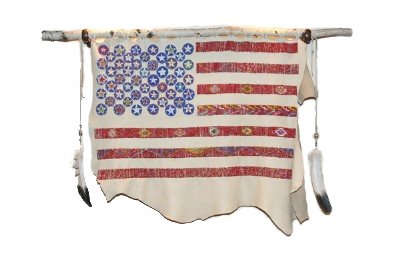Cleburne Times-Review Column for 26 February, 2006
“But let justice roll on like a river, righteousness like a never-failing stream!”
--Amos 5:24
We’re coming to the end of Black History Month, that annual occasion for school children to color pictures of peanuts while studying George Washington Carver and write essays about Bessie Coleman or Garrett Morgan. Some might argue it is mere tokenism, but sometimes even tokens have their value. For the first two hundred years of the Republic, American history was almost exclusively the history of white America. The contributions of non-whites were glossed over or ignored, the horrors of slavery were watered-down, and the history of North America didn’t begin at all until 1492. Until history is fully integrated, and all Americans regardless of race, are recognized for their role in the development of this country, I think we will need a Black History Month, and a Native American Heritage month, for that matter.
Black History Month makes me think of two things: first, it is truly amazing how far this country (and particularly the South) has come in terms of race relations in just one generation. We of the post Civil Rights Era tend to forget just what a horrific place Apartheid America was, where as recently as 1955 a teenager named Emmett Till could be tortured to death merely because somebody said he whistled at a white woman. From the end of the Civil War, as many as 5,000 people (85% of whom were African-American) were lynched (that is tortured to death and their bodies horribly mutilated by white mobs) for allegedly assaulting white women, acting “too uppity,” or even just for being more economically successful than whites. At the peak of this reign of terror, in 1892, 161 African-Americans were murdered in this fashion. Not only did these killings go unpunished, a cottage industry grew up for postcards commemorating the murders. Nor were lynchings confined to the South; lynchings occurred in, among other places, Port Jervis, New York in 1892 and Duluth, Minnesota in 1920. So, yes, the struggle for racial equality in America is far from over, but to quote Dr. Martin Luther King, Jr., “It may be true that the law cannot make a man love me, but it can stop him from lynching me, and I think that's pretty important.”
This brings up my second point about Black History Month. We have, since about 1970 or so, entered a new era in the Civil Rights Movement. De jure discrimination (that is, using the law to discriminate based on skin color) has been abolished. That in itself is a remarkable achievement, given the vast weight of Apartheid laws that governed America for a hundred years following the end of Reconstruction. Not only can the government not discriminate among its citizens, it will not (since the 1948 Supreme Court decision in Shelley v. Kraemer) allow the courts to be used to enforce private racism, such as racially restrictive covenants in real estate sales. And yet, de facto discrimination still exists from disproportionate sentencing for black defendants in criminal trials, to the declining but still extant problem of informal housing segregation, and the growing problem of re-segregation in public schools. Make no mistake: we cannot truly be equal if blacks and whites don’t feel comfortable enough with one another to live in the same neighborhoods or send their children to the same schools or if juries base their decisions on unconsciously racist notions. And overcoming this lingering reluctance, this underlying mistrust, will take not litigation or legislation, but a change in our hearts.
Racism, sadly, is deeply embedded in American history. In his first draft of the Declaration of Independence, Thomas Jefferson (the first poster child for white America’s ambivalent attitudes about race) wrote, “he has waged cruel war against human nature itself, violating it's most sacred rights of life and liberty in the persons of a distant people who never offended him, captivating and carrying them into slavery in another hemispere, or to incure miserable death in their transportation hither. this piratical warfare, the opprobium of infidel powers, is the warfare of the Christian king of Great Britain.” This condemnation of slavery was later removed due to the objections of Southern delegates, who indelicately pointed out the complicity of New England in the slave trade. Yet even Jefferson’s original writing was hypocritical, suggesting as it did the image of a cruel King George III forcing slaves on unwilling American colonists. And yet, if anti-slavery delegates had insisted that this clause remain, the Southern colonies would not have joined in Independence and the American Revolution would surely have failed. A decade later, the Constitutional Convention nearly collapsed over slavery, before finally settling on an odious compromise where African-Americans were each counted as three-fifths of a human being for purposes of assigning seats in the House of Representatives. But here again, without this morally-reprehensible compromise, there would’ve been no Constitution at all, and no United States as we would recognize it, only a bickering collection of weak states, variously under the domination of one European power or another.
The point, I suppose, is that we are all, white, black, Native American, Asian, bound together by history. The United States as we know it today could never have existed without the contributions of all her people. Our fates are inextricably woven together; we each of us cannot survive without the other. As Abraham Lincoln said, “If destruction be our lot we must ourselves be its author and finisher. As a nation of free men we must live through all time, or die by suicide.”
Labels: Column


0 Comments:
Post a Comment
<< Home